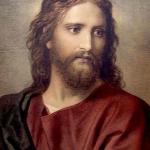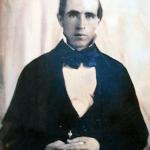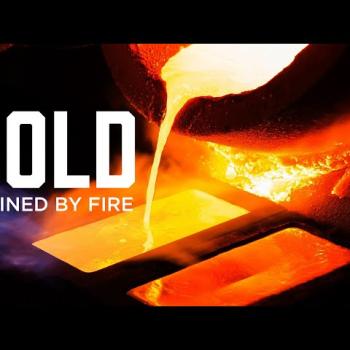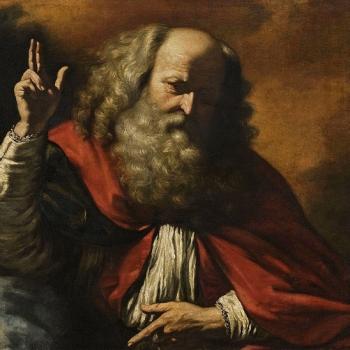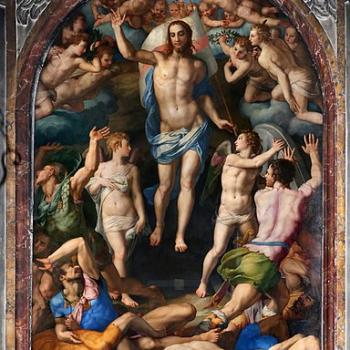
Mormonism denies the Trinity, which is essential to Christianity; therefore it is not Christian.
I’m not scared to say it, but then, I am an apologist, whose job is to say unpopular things, and note that someone or something is in error. We can’t say this in public now because it isn’t “PC” and is supposedly “bad form.” In Mormonism, man becomes God and God was once a man.
It’s a question of intellectual honesty. Mormonism is not Christian, by any stretch of the imagination, and in no conceivable, rational sense of what the word means, historically and confessionally and biblically. It just isn’t. We can’t pretend that it is by playing games. I detest the intellectual dishonesty of granting that it is Christian simply because Mormonism pretends that it is, in order to gain cultural and theological legitimacy. This only breeds more confusion and harms more souls who are ignorant of the truth of the matter and don’t know any better. And that’s not good.
It’s another species of bigotry against historic Christianity (under the hypocritical banner of being opposed to bigotry): that we are not allowed to either define ourselves or to denounce certain sins, without being automatically called bigots: as if the beliefs that “a=a” or “b is immoral” are the same as being a bigot. It’s asinine, and we mustn’t put up with it. Our society has made it impossible to be honest about this. But that doesn’t mean we have to play word games and deny reality.
Mormonism crosses a crucial line, by denying the transcendence of the one true God and asserting that there are multiple gods, who used to be men, and that we can become gods in the future. This is blasphemy and polytheistic heresy and not Christianity.
It’s not “stupid” or “intolerant” to say that Christianity is a certain Thing A, that has x, y, z, essential qualities; therefore, if Thing B denies one or more essential qualities x, y, z, it isn’t Christian. That not only isn’t “stupid,” it is elementary logic. Nor does this post have anything to do with persecution or bigotry.
What I will never do is lie and claim that something is Christianity that is not. Souls hang in the balance over such things. It’s no small matter. Christians who proclaim their faith will always be called intolerant. We were once murdered by the thousands for such things. I refuse to lay down and die, and deny that Christianity means a particular thing, when the contrary is true.
We’re supposedly “bigots” when we say that Christianity is a certain thing; means certain things, requires certain beliefs, which means that some belief-systems are outside of it. Christians define what a Christian is, not a secular dictionary. Anyone can say they follow Jesus. It has to have doctrinal content. The Church decides what is orthodox; who can be reasonably called a Christian, and who cannot. It’s always been this way; was in the Bible, and all through Church history.
Theology is theology, and understanding of it in cultures and societies is usually quite ignorant and warped. Our task is to lessen that confusion and clarify the truth of the matter; not to accept the ignorance and lay down and die, under pain of accusations of intolerance, etc.
If we start saying that anyone is a Christian, simply because he or she says so, no matter what he or she believes (every heresy in history did the same), then we may as well kiss theology and any semblance of the notion of orthodoxy goodbye. That would be disastrous on many levels. Many souls could very well end up in hell by virtue of such confusion and chaos. Protestant denominationalism and the relativism entailed therein, is bad enough.
This is always the Christian problem: being wimps in the face of ever-encroaching secularism and the darkness of immorality (especially sexual). We laid down and died in 1973 when abortion was legalized. We probably will again when so-called homosexual “marriage” is legalized (as it likely will be in the next ten years) [this was written in 2011]. Right now, we have Catholics saying Mormons are Christians, because it is too costly to deny it. At some point one must take a stand for truth, no matter what the cost.
Catholicism and Orthodoxy were always trinitarian, and never were not so, and Protestantism always was, too, from its beginning. Groups that rejected the Trinity and broke away later on, were not Christian (or Protestant) by definition, because they rejected what always was considered orthodox (think, Nicene Creed).
Mormonism can hardly be considered “Protestant” (or Christian), with its doctrines that had never been heard of before, purported to be a result of finding tablets, etc. It would be like saying (by analogy) that I, as a Michigander, don’t have to live by any of the rules set for me by my state, county, and town, yet I am still a citizen in full standing. One can’t change the rules like that; switch horses in mid-stream.
Likewise, Mormonism can’t come along and assert that God was once a man, and men can become gods, and pretend that this is Christianity, when it was scarcely heard anywhere before. That is plainly dishonest and an abuse of language. It denies monotheism and the transcendence of God: concepts so basic and elementary that even Jews and Muslims agree with us where they are concerned. In that sense, Mormonism is even further from Christianity than these other monotheistic religions are, because it is polytheistic.
The following propositions were believed from the earliest days of Christianity:
1. The Father is God.
2. The Son is God.
3. The Holy Spirit is God.
Yet there is one God, not three. This original, “kernel” concept then developed into all the intricacies we know about now. To believe something always, from the beginning means to believe in its essential aspects: what makes it what it is. For the Trinity, that is the above.
Christianity has always been trinitarian; small break-off groups who deny this aren’t Christians, but heretical sects, or cults. Non-trinitarians are not Christians.
The lower peninsula of Michigan has always been between Lake Huron and Lake Michigan. If some land ain’t between those two lakes, it ain’t the lower peninsula of Michigan.
Elephants can’t fly; if an animal flies, it’s not an elephant, etc. The argument is historical and logical, in addition to being from ecclesiastical authority (that we also add, as Catholics). But our authority isn’t necessary to make the point, and wouldn’t be accepted anyway, since it is a criterion internal to us.
Trinitarianism is an essential quality of Christianity, just as mammals all have certain qualities that distinguish them (warm-bloodedness, expansible thorax, hair or fur, etc.). Therefore, to deny it is to not be a Christian. Protestants historically have agreed that trinitarianism is true. They defend it from the Bible just as we do (and usually better than we do). They can say on the authority of the Bible and universal Christian tradition that it is essential.
Trinitarianism is common to all Christians; therefore, we can present a united front in that respect, and join together in saying that Mormonism is not Christian. We also jointly hold to monotheism and the transcendence of God over His creation, over against Mormons, and even Muslims and Jews agree with us on that.
I would also note that if one accepts the material sufficiency of Scripture, all true doctrines are in the Bible. Therefore, a Protestant setting out to defend the Trinity from the Bible (as I did in the early 80s) has full authority, and is correct. Anyone with minimal training in theology and sufficient Bible reading can find monotheism and the transcendence of God in Scripture even before they find the Trinity, and that alone is sufficient to prove that Mormons are not Christians, since they profoundly contradict biblical teaching.
A Protestant who has studied Scripture (theology proper and Christology) can indeed say with “authority” that Mormonism is neither Christian nor biblical, having denied trinitarianism, the deity of Christ, monotheism, and the transcendence of the Creator God. The authority is the inspired revelation: the Bible. It is massive and it is fairly plain: at least once it is collected together. The Protestant can also know full well that Mormon proclaiming of three other books as revelation just isn’t right, and is clearly outside of historic Christianity.
Matters of definition and orthodoxy can never be, and should never be decided by a head count of folks “on the ground.” We don’t define truth or orthodox doctrine based on polls or even what (often) heterodox scholars think. It’s a matter of the utmost theological importance: what is a Christian? How is one saved? Can a man become God? A view being spread far and wide, that says Mormonism is as Christian as any other denomination, or Catholicism, will be poison, and will rapidly accelerate the theological relativism that is already sadly rampant.
Just because there is a lot of nominalism and Christianity in name only, laxity, liberalism, nonchalant attitudes, moral compromise; doesn’t mean that therefore, Christianity as an identifiable entity has ceased to exist.
It is always the case for all belief-systems, that they have to be defined by “the books”: not by the drunk Catholic in a bar or the pious (but sometimes heterodox) old lady with purple tennis shoes and a babushka, or (for Protestants) the snake-handling fundamentalist in a storefront church in Podunk. Often John Calvin is pitted against the average Catholic on the street, as if that is a fair fight.
Religion is not a matter of majority vote, but of truth. When I say “we Christians should define, ” etc., I presupposed that it was the informed, thinking Christians, not the ones who couldn’t care less and don’t know the Trinity from a treetop. But there are things called “Catholicism” and “Christianity” and they do have definitions that can be objectively ascertained. This is crucial, and one would expect me as an apologist to fight for it!, because definitions and premises are always crucial in all serious discussion.
(originally 10-11-11)
Photo credit: Mitt Romney (Mormon) speaking at a supporters rally in Paradise Valley, Arizona on December 6, 2011. Photograph by Gage Skidmore [Wikimedia Commons / Creative Commons Attribution-Share Alike 3.0 Unported license]
***


